Note: This is a reading list for candidates that are looking for an engaging read while enhancing their knowledge for the CFA exams and investment management. These books are not curriculum readings and are not intended act as preparation material for the CFA exams.
Looking forward to some end of the year reading? Why not read something entertaining and educational?
We have collated a simple CFA reading list to help solidify readers grasp on finance, but at the same time be a fun and engaging read. And you don’t have to take an exam at the end of it – win-win!
Whether you’re CFA Level 1, Level 2 or Level 3, the books in this list will help round out CFA candidates’ perspectives, recommended by CFA Institute staff members and the 300Hours editors.
Each carefully selected book will challenge your thinking and develop areas that typically only emerge after years of on the job.
2026 CFA Reading List: Top 20 Picks for Candidates
The Coming Wave: AI, Power and the 21st Century’s Greatest Dilemma (Mustafa Suleyman & Michael Bhaska)
Soon we will be surrounded by AIs. None of us are prepared.
The co-founder of the pioneering AI company DeepMind (part of Google), Mustafa Suleyman explains how these forces will create immense prosperity but also threaten the nation-state, the foundation of global order.
This ground-breaking book from the ultimate AI insider establishes ‘the containment problem’ – the task of maintaining control over powerful technologies – as the essential challenge of our age.
The Psychology of Money (Morgan Housel)
A highly accessible and practical guide to the fundamental behavioral finance concepts, making it an excellent complement to the more theoretical CFA curriculum.
Housel argues that doing well with money has less to do with intelligence and more to do with behavior.
This book uses 19 short stories to explore the strange ways people think about money, risk, saving, and investing, highlighting the behavioral biases that often trip up even the most rational finance professionals.
Narrative and Numbers: The Value of Stories in Business (Aswath Damodaran)
The “Dean of Valuation” shows how to value modern businesses by combining traditional finance with compelling business narratives, which is a perfect complement to Benjamin Graham’s classic (further below).
A framework for robust business valuation that bridges the gap between the qualitative story (the Narrative) and the quantitative data (the Numbers). Damodaran shows that effective valuation requires combining a compelling, credible story with the rigor of a financial model.
It teaches the readers how to stress-test a growth story and turn a strategic vision into measurable cash flow inputs for a discounted cash flow (DCF) model, helping candidates avoid relying solely on model mechanics.
Investment Banking: Valuation, Leveraged Buyouts and Mergers & Acquisitions (Rosenbaum & Pearl) – 3rd Edition
The textbook for you if you’re looking to break into investment banking.
Rosenbaum and Pearl once again have written the definitive book that they wish had existed when they were trying to break into Wall Street.
The 3rd Edition is essential, as it updates the content to reflect post-2008 financial reforms, new M&A landscape trends, and changes in the regulatory environment. It also includes new content on Initial Public Offerings (IPOs).
It also focuses on the primary valuation methodologies currently used on Wall Street comparable companies, precedent transactions, DCF, and LBO analysis as well as M&A analysis.
A Random Walk Down Wall Street (Burton G. Malkiel)
The essential classic that popularized the Efficient Market Hypothesis (EMH) and the “Random Walk” theory. Malkiel argues that consistent active management is futile because stock prices already reflect all available information.
This book provides a foundational understanding of market efficiency and challenges active strategies like technical and fundamental analysis. Its ultimate conclusion—a portfolio of low-cost, diversified index funds is the optimal strategy—is a core tenet of modern portfolio theory.
The Handbook of Fixed Income Securities (Frank J. Fabozzzi) – 9th Edition
The most trusted resource in the world for fixed income investing for decades.
Written by Frank Fabozzi, professor of finance at EDHEC Business School and a member of the EDHEC Risk Institute and on the board of BlackRock, the Ninth Edition features all-new chapters covering highly relevant topics, including Financial Data Science, Factor Investing in fixed income, Smart Beta Fixed Income, and Green Bonds, reflecting the market’s dramatic shift since earlier editions.
The Intelligent Investor (Benjamin Graham)
The bible of investing, by the father of value investing.
‘The Dean of Wall Street’, as Benjamin Graham was called, was considered the first proponent of value investing, an investment approach he began teaching at Columbia Business School in 1928.
Graham’s original text is timeless, but its examples are decades old. The Revised Edition includes commentary by journalist Jason Zweig, which draws parallels between Graham’s original concepts and today’s financial headlines (e.g., the dot-com bubble, 2008 crisis). This context makes the foundational principles immediately relevant to the modern candidate.
Shoe Dog: A Memoir by the Creator of Nike (Phil Knight)
“You are remembered for the rules you break.”
Fresh out of business school, Phil Knight borrowed fifty dollars from his father and launched a company with one simple mission: import high-quality, low-cost running shoes from Japan.
Selling the shoes from the trunk of his car in 1963, Knight grossed eight thousand dollars that first year. Today, Nike’s annual sales top $30 billion.
In this age of start-ups, Knight’s Nike is the gold standard, and its swoosh is one of the few icons instantly recognized in every corner of the world.
Bill Gates named Shoe Dog one of his five favorite books of 2016 and called it “an amazing tale, a refreshingly honest reminder of what the path to business success really looks like. It’s a messy, perilous, and chaotic journey, riddled with mistakes, endless struggles, and sacrifice. Phil Knight opens up in ways few CEOs are willing to do.”
The Big Short: Inside the Doomsday Machine (Michael Lewis)
In The Big Short, Michael Lewis chronicles the events leading up to the 2008 financial crisis.
His dark humor and narrative makes subprime mortgages and credit default swaps almost sexy.
His ragtag group of characters, the idiocy, madness and greed highlighted in the book makes it a really fun and educational read.
This book was made into a 2015 movie The Big Short, which is also recommended in our best finance movies list.
Die with Zero: Getting All You Can from Your Money and Your Life (Bill Perkins)
Bill Perkins champions a radical philosophy: maximize life experiences, not wealth. He argues that money is merely a tool, and dying with a large unused balance means you wasted the precious time (“life energy”) spent earning it.
Perkins’s plan involves “experience bucketing”—scheduling key adventures for the time in your life when you have the best combination of health and wealth. He encourages you to spend intentionally now, focusing on memories that pay a continuous “memory dividend.”
The book serves as a practical guide for avoiding over-saving, urging readers to give to children or charity early for maximum impact, and ultimately aiming to use all your resources to live the fullest possible life.
Easy Money: Cryptocurrency, Casino Capitalism, and the Golden Age of Fraud (Ben McKenzie and Jacob Silverman)
In Easy Money, McKenzie enlists the help of journalist Jacob Silverman for an investigative adventure into crypto and its remarkable crash.
Weaving together stories of average traders and victims, colourful crypto “visionaries,” Hollywood’s biggest true believers, anti-crypto whistleblowers, and government operatives, Easy Money is an on-the-ground look at a perfect storm of irresponsibility and criminal fraud.
A great, relevant read which complements your CFA studies as well.
Money of the Mind: Borrowing and Lending in America from the Civil War to Michael Milken (James Grant)
An engaging history of finance.
Credit makes the world go ‘round, and can just as easily make it stop, as we have learned all too recently.
It’s a shame so many people in finance are ignorant of its fascinating history, which contains lessons of potential relevance today.
If you are one of those people, James Grant’s Money of the Mind will go a long way towards curing you.
The Art of Spending Money: Simple Choices for a Richer Life Paperback (Morgan Housel)
In The Art of Spending Money, Morgan Housel pivots from the mechanics of building wealth to the rarely discussed psychology of using it to achieve a happier life.
Housel argues that most people are terrible at spending because they confuse admiration with envy and chase status symbols that leave them cold. The book doesn’t offer budgets or cookie-cutter financial rules, but rather a psychological framework for aligning your money with your deepest values.
Housel asserts that money’s most valuable returns are not financial, but rather the peace of mind and independence it buys. He delves into the complex issues surrounding money—like identity, insecurity, and social aspirations—to help readers understand why they spend and why they save.
By encouraging self-awareness over spreadsheets, The Art of Spending Money teaches you how to sidestep common spending traps, make choices for yourself instead of for others, and ultimately wield your wealth to enhance your personal enjoyment of life.
Liar’s Poker (Michael Lewis)
Entertaining, funny, and important lessons for the young investment banker.
A classic recommendation to anyone starting out in finance.
Liar’s Poker is an extended Aesop’s Fable for the modern financial age: Michael Lewis’ first-hand account as a bond salesman in Solomon Brothers, one of the most powerful and profitable merchant banks in their time.
Among the many entertaining and funny experiences, you’ll also clearly glean important life lessons for investors and investment banks alike.
The Snowball: Warren Buffett and the Business of Life (Alice Schroeder)
The Warren Buffett must-read.
An inside look into the life and career of Warren Buffett – one of the most revered investment figures in the world.
Despite never having written a memoir, he has been persuaded to allow Alice Schroeder to spend time with him and those with whom he works to investigate his business triumphs, his opinions… and his mistakes.
A hefty book, but an engaging one.
Antifragile (Nassim Nicholas Taleb)
Antifragility — the concept that some systems (people, companies, institutions) do not merely withstand shocks, but actually improve and grow stronger when exposed to volatility, randomness, and stress. It is the opposite of fragile.
This provides advanced perspective on Risk Management and Behavioral Finance. It advocates for the Barbell Strategy (most assets in safe instruments, small exposure to high-risk ventures) and focuses on reducing exposure to negative, high-impact events (Black Swans) while maximizing upside optionality.
Barbarians at the Gate (Bryan Burrough)
The largest and most dramatic corporate takeover in American history.
An insightful look into the frenetic world of corporate takeovers in the 80s, in particular, the battle for RJR Nabisco in the autumn of 1988.
An absolute pleasure to read and approachable even for those unfamiliar with finance, it’s both an engaging thriller and an instructive business book.
The Man Who Solved the Market (Gregory Zuckerman)
This is the definitive, captivating story of Jim Simons and Renaissance Technologies, the mysterious and wildly successful quantitative hedge fund.
It chronicles the rise of the quant revolution, detailing how mathematicians and scientists — not traditional finance experts — built an investment strategy based purely on data, algorithms, and statistical anomalies. For candidates studying alternative investments and quantitative methods, this book offers a deep, narrative insight into the technology and personalities driving the most secretive and profitable trading firm in history.
When Genius Failed: The Rise and Fall of Long Term Capital Management (Roger Lowenstein)
The cautionary tale of Long-Term Capital Management.
A vivid, detailed and thrilling account of the rise and cataclysmic fall of Long-Term Capital Management, the supposed hedge fund to end all other hedge funds.
Alongside the dramatic tale, Lowenstein blends a post-mortem of how LCTM failed, and lessons in how models and investment theorems based on past experiences may be a lot less reliable than expected.
Only the Paranoid Survive (Andrew S. Grove)
Ask and you shall receive.
To combat groupthink, “yes-men”, and self-preservation instincts, Grove advocates that business leaders use a proactive approach of engaging with all those people in a position to know better.
Even though you may be expected to “know” all the answers, he says, you need to make yourself vulnerable and fight through any ignorance you may have by asking honest, open-ended questions.
In this way, you can improve your knowledge about what is happening. Without necessarily knowing Philip Fisher’s terminology, Grove illustrates how to put the scuttlebutt method into practice.
Special Mentions: also recommended if you’re thirsty for more

How to Win Friends and Influence People (Dale Carnegie)
Dale Carnegie’s rock-solid, time-tested advice has carried countless people up the ladder of success in their business and personal lives.
Sapiens: A Brief History of Humankind (Yuval Noah Harari)
The Summer Reading Pick for President Barack Obama, Bill Gates, and Mark Zuckerberg.
One hundred thousand years ago, at least six different species of humans inhabited Earth. Yet today there is only one—homo sapiens. What happened to the others? And what may happen to us?
Flash Boys (Michael Lewis)
In Michael Lewis’s game-changing bestseller, a small group of Wall Street iconoclasts realize that the U.S. stock market has been rigged for the benefit of insiders.
They band together―some of them walking away from seven-figure salaries―to investigate, expose, and reform the insidious new ways that Wall Street generates profits.
If you have any contact with the market, even a retirement account, this story is happening to you.
Thinking, Fast and Slow (Daniel Kahneman)
In the international bestseller, Thinking, Fast and Slow, Daniel Kahneman, the renowned psychologist and winner of the Nobel Prize in Economics, takes us on a groundbreaking tour of the mind and explains the two systems that drive the way we think.
System 1 is fast, intuitive, and emotional; System 2 is slower, more deliberative, and more logical.
The impact of overconfidence on corporate strategies, the difficulties of predicting what will make us happy in the future, the profound effect of cognitive biases on everything from playing the stock market to planning our next vacation―each of these can be understood only by knowing how the two systems shape our judgments and decisions.
Influence: The Psychology of Persuasion (Robert Cialdini)
A New York Times bestseller, Dr. Robert B. Cialdini — the seminal expert in the field of influence and persuasion — explains the psychology of why people say yes and how to apply these principles ethically in business and everyday situations.
The Undoing Project (Michael Lewis)
Forty years ago, Israeli psychologists Daniel Kahneman and Amos Tversky wrote a series of breathtakingly original papers that invented the field of behavioral economics.
One of the greatest partnerships in the history of science, Kahneman and Tversky’s extraordinary friendship incited a revolution in Big Data studies, advanced evidence-based medicine, led to a new approach to government regulation, and made much of Michael Lewis’s own work possible.
In The Undoing Project, Lewis shows how their Nobel Prize-winning theory of the mind altered our perception of reality.
The Black Swan: The Impact of the Highly Improbable (Nassim Nicholas Taleb)
A black swan is a highly improbable event with three principal characteristics: It is unpredictable; it carries a massive impact; and, after the fact, we concoct an explanation that makes it appear less random, and more predictable, than it was.
The astonishing success of Google was a black swan; so was 9/11.
For Nassim Nicholas Taleb, black swans underlie almost everything about our world, from the rise of religions to events in our own personal lives.
How to Lie with Statistics (Darrell Huff)
Darrell Huff runs the gamut of every popularly used type of statistic, probes such things as the sample study, the tabulation method, the interview technique, or the way the results are derived from the figures, and points up the countless number of dodges which are used to full rather than to inform.
The New Confessions of an Economic Hit Man: How America really took over the world (John Perkins)
Economic Hit Men (EHMs) are highly paid professionals who work for a vast network of corporations, banks, and colluding governments—the “corporatocracy.”
Their job is to convince leaders of developing nations to accept massive loans for projects that primarily enrich U.S. corporations, saddling the countries with crippling, unpayable debt. This debt allows the U.S. to control their political systems, gain access to their natural resources, and ensure their long-term servitude. If EHMs fail, the “jackals” are sent in for regime change, coups, or assassinations.
The New Confessions of an Economic Hit Man features over 40 percent new material, revealing how the deadly EHM “cancer” has spread and become the dominant system of business and government across the globe—and chillingly, home to the US. Perkins provides fresh details about the new generation of EHMs and jackals, exposes the spread of the system into China’s economic strategy, and outlines a detailed plan for transforming this destructive “Death Economy” into a sustainable “Life Economy” for all.
More Money Than God: Hedge Funds and the Making of the New Elite (Sebastian Mallaby)
Wealthy, powerful, and potentially dangerous, hedge fund moguls have become the It Boys of twenty-first- century capitalism.
Beating the market was long thought to be impossible, but hedge funds cracked its mysteries and made fortunes in the process.
Drawing on his unprecedented access to the industry, esteemed financial writer Sebastian Mallaby tells the inside story of the hedge funds, from their origins in the 1960s to their role in the financial crisis of 2007 to 2009.
Hope you enjoyed the recommended books for CFA candidates above. If you have any recommendations to add, let us know in the comments below!
Meanwhile, you may find these related articles of interest:
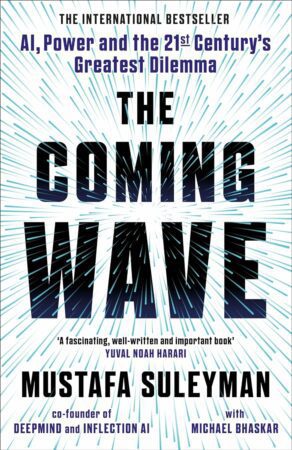
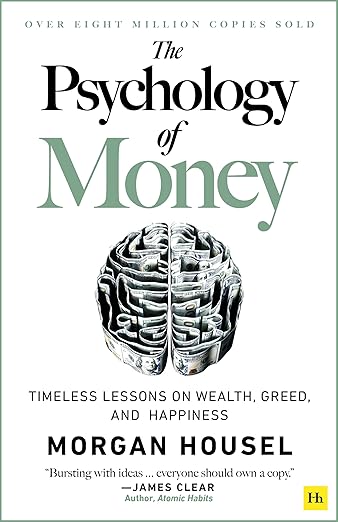
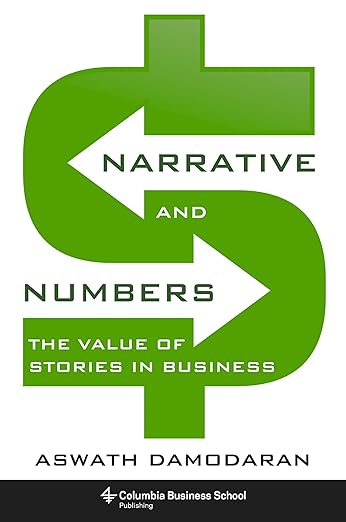
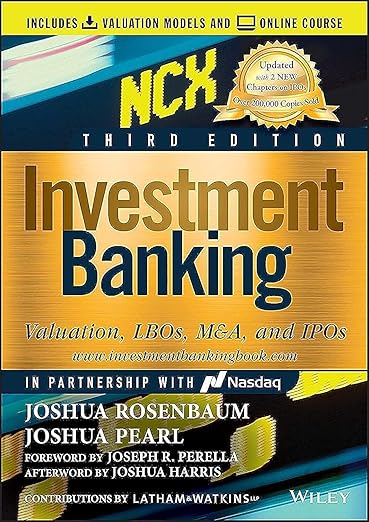
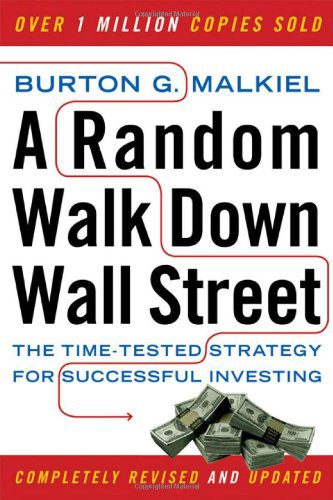
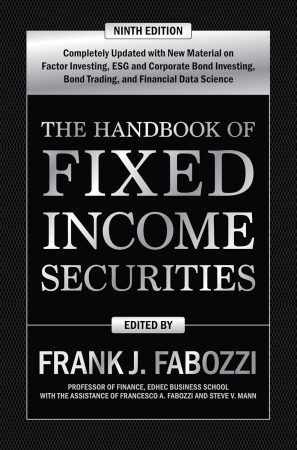
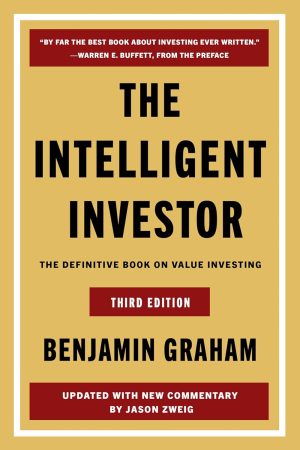
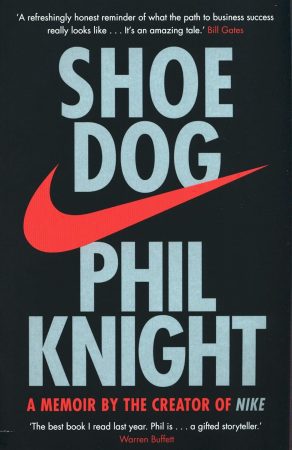
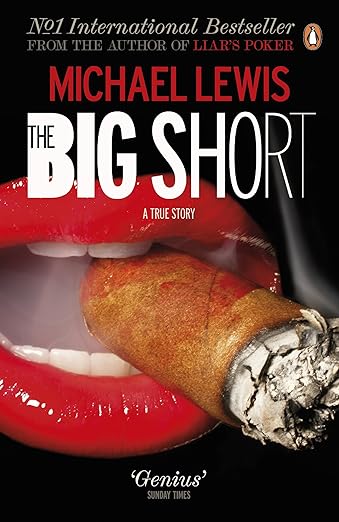
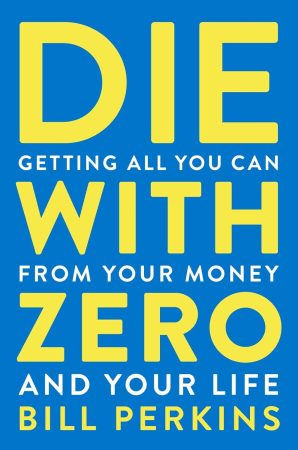
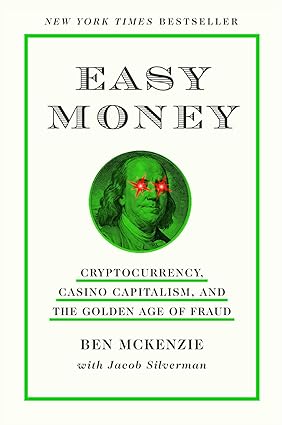
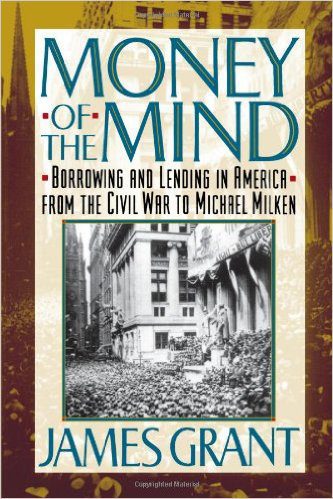
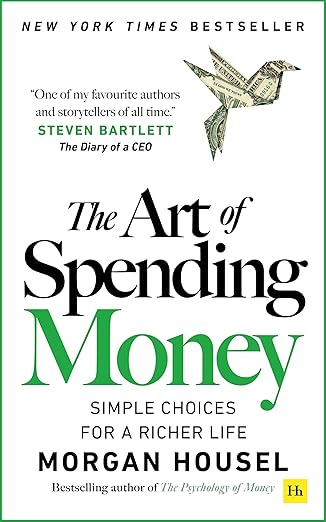

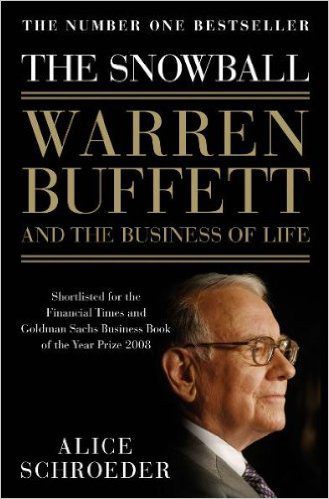
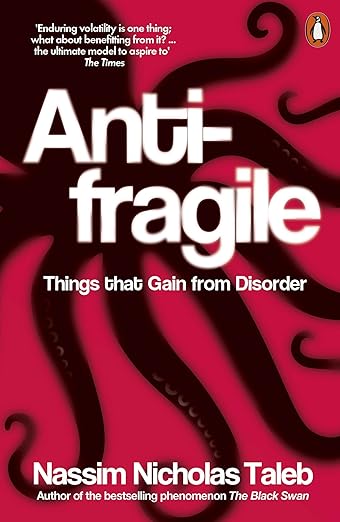
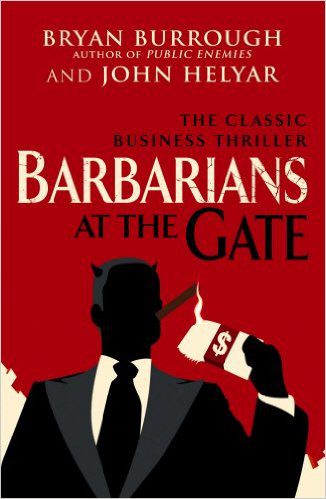

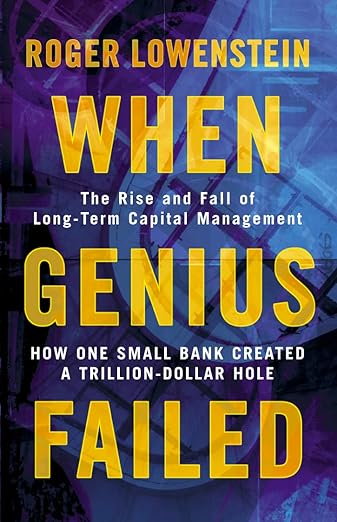
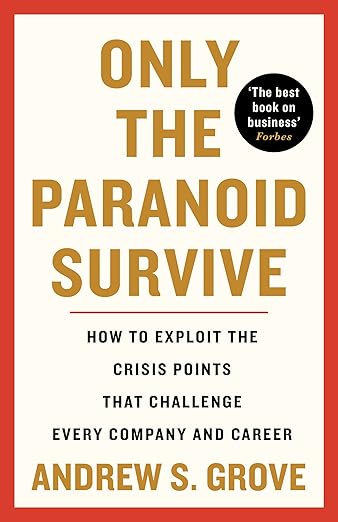
Is the 2nd edition of IB book better than the 3rd?
Another good one is Do-It-Yourself Wealth Management by Stanley Kon
Thanks for the recommendation!
Money for Nothing by Thomas Levenson
A history of the South Sea Bubble and the first steps in the development of the stock and debt markets. I found it particularly interesting as a Level I candidate as it touches on many CFA topics, such as the time value of money, derivatives and leverage.
Thanks for the recommendation!
Den of Thieves by James Stewart